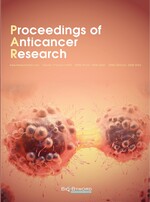Abstract
Objective: To explore the correlation between traditional Chinese medicine (TCM) syndrome types and the influencing factors of asthmatic bronchitis in children, as well as to provide clinical syndrome differentiation basis and reference for the treatment of children with asthmatic bronchitis. Methods: The clinical data of 197 inpatients with asthmatic bronchitis in our hospital from March 2021 to March 2022 were collected, referring to “Zhu Futang Practical Pediatrics” (7th Edition, 2002) and “Chinese Medicine Industry Standards – Standards for Diagnosis and Efficacy of Pediatric Diseases and Syndromes of Traditional Chinese Medicine” (1994, State Administration of Traditional Chinese Medicine) for diagnosis, classification, and analysis of TCM syndrome types and the influencing factors of asthmatic bronchitis in children. Results: (i) cold asthma syndrome contributed to the majority of TCM syndrome types of pediatric asthmatic bronchitis; (ii) gender had a great influence on TCM syndromes types in children with asthmatic bronchitis, and the differences among the TCM syndrome types were statistically significant (P < 0.05); (iii) there was no significant difference in the distribution of TCM syndrome types of pediatric asthmatic bronchitis among different age groups (P > 0.05); (iv) birth status had no effect on the distribution of TCM syndrome types of pediatric asthmatic bronchitis (P > 0.05); (v) no significant correlation was observed between the mode of delivery and the distribution of TCM syndrome types in children with asthmatic bronchitis (P > 0.05); (vi) children with cold asthma syndrome, heat asthma syndrome, and mixed cold and heat syndrome were not breastfed, and there was no significant difference in the feeding methods of children with mixed deficiency and excess syndrome (P > 0.05); (vii) no significant correlation was observed between the TCM syndrome types of pediatric asthmatic bronchitis and family history of asthma/allergy (P > 0.05); (viii) a significant correlation was observed between different TCM syndrome types and history of drug and food allergy (P < 0.05); (ix) normal or high eosinophil percentage was commonly observed in children with asthmatic bronchitis, and there was no significant difference among the different TCM syndrome types (P > 0.05). Conclusion: The TCM syndrome types of pediatric asthmatic bronchitis are related to gender, feeding history, allergy history, and other factors, which may be influencing factors of the TCM syndrome types of pediatric asthmatic bronchitis.
References
Ma C, Song Z, 2021, Clinical Observation of Wenfei Huayu Decoction in Treating Children with Asthmatic Bronchitis. Journal of Practical Traditional Chinese Medicine, 35(10): 77–79.
Geng X, 2021, Clinical Observation of Maxing Shigan Decoction and Maimendong Decoction in Treating Infantile Asthmatic Bronchitis. Guangming Traditional Chinese Medicine, 36(11): 1838–1840.
Deng S, 2021, Clinical Study of Modified Dingchuan Decoction in Treating Children with Asthmatic Bronchitis with External Cold and Internal Heat Syndrome, thesis, Guangxi University of Traditional Chinese Medicine.
Fang J, Nie C, 2021, Clinical Efficacy of Modified Shegan Mahuang Decoction in the Treatment of Asthmatic Bronchitis in Children. Journal of Clinical Rational Drug Use, 14(06): 144–145.
Huang H, 2017, Study on Syndrome Differentiation and Treatment of Children with Asthmatic Bronchitis. Clinical Medical Engineering, 24(02): 221–222.
Guo C, Zhang J, Wei C, et al., 2019, Clinical Features of Asthmatic Bronchitis Under 5 Years Old and Analysis of Related Factors for Developing Bronchial Asthma. Journal of Mathematics and Medicine, 32(07): 1020–1022.
